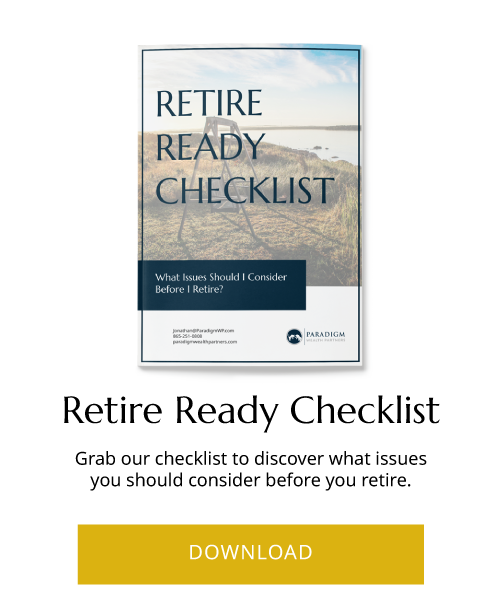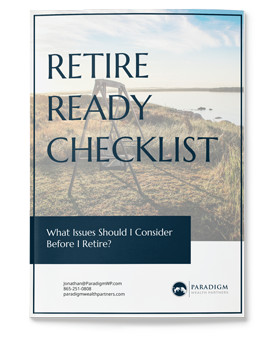Budgeting Road
“If you don’t know where you are going, any road will take you there.”
You may recognize this line from the George Harrison song “Any Road”. George seems to have been paraphrasing an exchange between Alice and the Chesire Cat from “Alice’s Adventures in Wonderland”:
“Would you tell me, please, which way I ought to go from here?”
“That depends a good deal on where you want to get to,” said the Cat.
“I don’t much care where—” said Alice.
“Then it doesn’t matter which way you go,” said the Cat.
“—so long as I get SOMEWHERE,” Alice added as an explanation.
“Oh, you’re sure to do that,” said the Cat, “if you only walk long enough.”
Explaining the Lyrics
The Chesire Cat is correct. If you don’t care where you’re going, you don’t need a map, a path, or a plan. You can just wander in any old direction and you’ll be somewhere. Sometimes just meandering along without a plan can be great. Like being on vacation in a new city and deciding to walk around while taking in the sights you happen upon.
But when it comes to your finances, you can’t just wander along hoping for the best. You need a road map, a financial plan with a co-pilot, to help you navigate to where you want to be. Not just anywhere.
Mapping Out Your Plan
A complete financial plan can seem a bit overwhelming, but your plan is really just a series of simple steps that are taken individually.
A Budget
Budgeting isn’t only for those who live paycheck-to-paycheck. A budget shows you how much money is coming in, how much is going out, and where that money is going. Everyone can benefit from creating (and sticking to) a budget.
You no longer need to create and log expenses into a spreadsheet. There are plenty of great budgeting programs available that make budgeting easier than ever.
A Debt Repayment Plan
If you have high-interest debt (typically credit card debt), you need to pay it down strategically so you can do so quickly and efficiently. The fastest method of debt repayment is the “stacking method”. You pay down the debt with the highest interest rate first, paying as much as you can on it each month. Meanwhile, you pay the minimum on the other debts. Once the first debt is paid, take this payment to hit the next debt on the list; while still paying the minimum on the others. Continue this way until all the debts are paid.
You may be able to get a personal loan or a mortgage refinance at a lower interest rate than your credit cards. Your credit score must be good enough to do this. You can use the loan or the money from the refinance to pay off that high-interest debt.
An Emergency Fund
An emergency fund is money set aside for unexpected expenses like a car, home repair, or job loss. This fund ensures that you won’t have to use a credit card (and potentially pay interest if you’re unable to pay them off quickly) or pull money out of your investments (which could result in penalties).
Your emergency fund should contain three to six months’ worth of necessary expenses and should be kept in a highly liquid account.
Short-Term Goals
The timeline of your goals determines what kind of investment, if any, is appropriate for the money you’re saving towards that goal. Short-term goals are those things you want to do in five or less years (pay for a wedding, return to school, start a business, et cetra).
Short-term money is the hardest to decide where to invest. The money needs to be fairly liquid and relatively safe. Five years is not enough time to ride out the ups-and-downs of the stock market. Depending on your goals, this money could be thousands of dollars. It’s hard to see this money sitting in a low-yield savings account earning next-to-nothing interest.
Medium-Term Goals
Medium-term goals include things like saving for a home, saving for a rental property, or educational expenses for a child. These are things you plan to do in five to ten years. You have a little more flexibility with this money; particularly if you don’t have a hard deadline for spending it. That means you can afford to take a little more risk with this money compared to your short-term goal money.
Long-Term Goals
Commonly, long-term goals are those that are more than ten years in the future. For most people, long-term goals are retirement and estate planning (which includes having adequate insurance).
Long-term money is your “all-in” money. You’re not going to touch this money for decades; which means it does have time to withstand market fluctuations. This is the money you will invest in tax-advantaged retirement accounts including a 401(k), IRA (Roth or Traditional), and Health Savings Accounts.
Many people put off estate planning thinking mustn’t be concerned with it until they reach retirement. However, if you have a spouse, children, or considerable assets- you need to create an estate plan. People often think once they have life, home, and auto insurance; all their insurance needs are covered. But long-term care can protect your estate and your family from the ever-rising cost of health care.
Finding Your Co-Pilot
As you can see, the various aspects of a financial plan are not too overwhelming. Unfortunately, the overwhelming part is the number of choices available to fill in your financial plan. CDs or Money Market Accounts? Robo-advisor or mutual fund? Traditional IRA or Roth? And once you choose, which provider do you use?
That’s where your CERTIFIED FINANCIAL PLANNER™, your co-pilot comes in. Your Paradigm Wealth CFP® won’t offer you a one-size-fits-all financial plan; because there is no such thing as a one-size-fits-all financial plan.
Your CFP® will get to know you, your plans, and goals so they can craft a bespoke financial plan that will help you and your family pursue your dreams while leaving money in the background where it belongs.
Thanks for reading! Wanting to hear more about our financial opinions and expert advice? Visit our blog here!
_______________________
Content in this material is for general information only and not intended to provide specific advice or recommendations for any individual. No strategy assures success or protects against loss. Investing involves risk including loss of principal.
Securities offered through LPL Financial. Member FINRA/SIPC. Investment advice offered through Paradigm Wealth Partners, a registered investment advisor and separate entity from LPL Financial.



